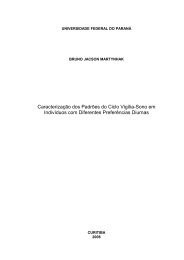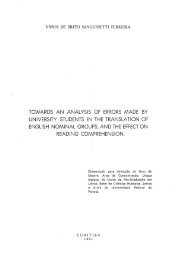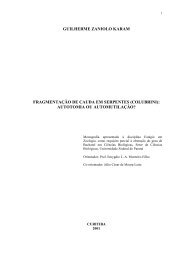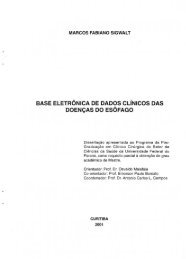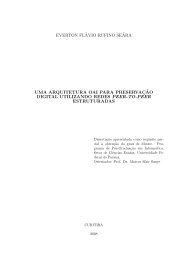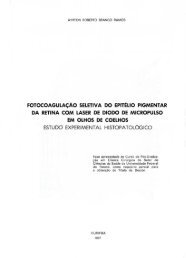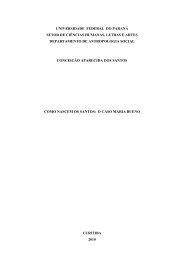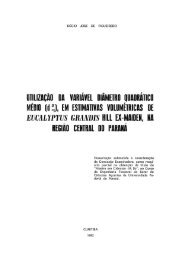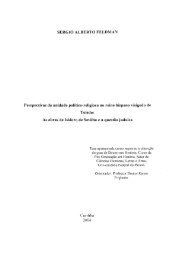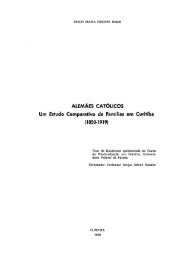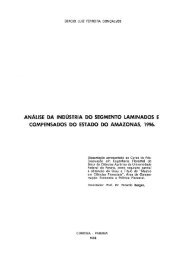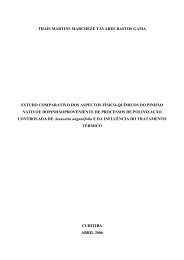D - PUGSLEY, MARISTELA.pdf - DSpace - Universidade Federal do ...
D - PUGSLEY, MARISTELA.pdf - DSpace - Universidade Federal do ...
D - PUGSLEY, MARISTELA.pdf - DSpace - Universidade Federal do ...
Create successful ePaper yourself
Turn your PDF publications into a flip-book with our unique Google optimized e-Paper software.
8<br />
publicidade derive from the Latin verb "publicare", to make<br />
something known to people. Advertising comes from the Latin<br />
"advertere", to turn toward or to call attention to something.<br />
Another word often associated to advertising is propaganda.<br />
Its use, however, is more restricted in English than in<br />
Portuguese. While in Portuguese we may refer to an ad on<br />
television or in a magazine as "uma propaganda" and we may<br />
also use the term in a general sense ("propaganda comercial,<br />
política, religiosa"), in English we generally use propaganda<br />
in the sense of "systematic propagation of a given <strong>do</strong>ctrine."<br />
This interpretation often implies dissemination of ideas in<br />
order to favor one's own cause or to harm someone else's.<br />
Although both in English and in Portuguese a lot of ads<br />
explicitly offend their competitors, this should not be the<br />
purpose of<br />
advertising.*<br />
On the other hand, it is not possible to hide the<br />
intention of advertising to persuade and influence the<br />
public, besides informing it about products and services.<br />
According to O'DONNELL & TODD (1980), advertising is "a form<br />
of persuasion directed at large numbers of people by means of<br />
i<br />
the media" and it is a "complex phenomenon because it involves<br />
two interacting processes, namely, communication and<br />
persuasion, and both processes are many-faceted. Since<br />
these are processes involving man and his life in society, we<br />
may conclude as VESTERGAARD & SCHRÄDER (1986) have:<br />
*The definitions were taken from Dicionário brasileiro da lingua portuguesa<br />
(p.1404, 1419), The American heritage dictionary of the English language (p.11, 564), and<br />
Oxford advanced learner's dictionary of current English (p.675). Complete references can be<br />
found in the Bibliographical References.



